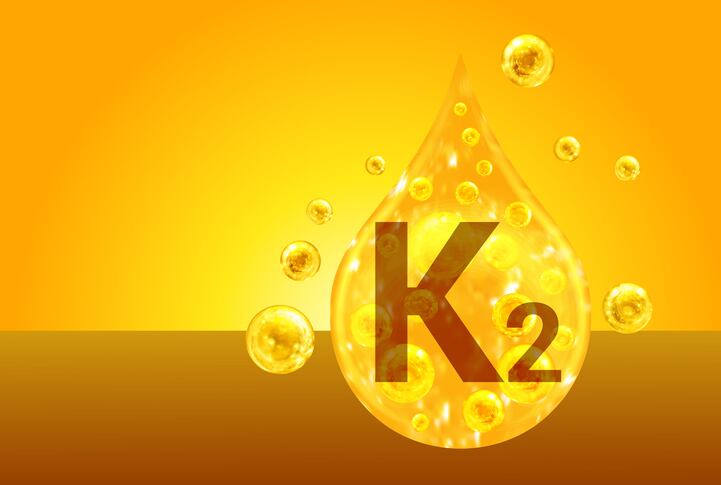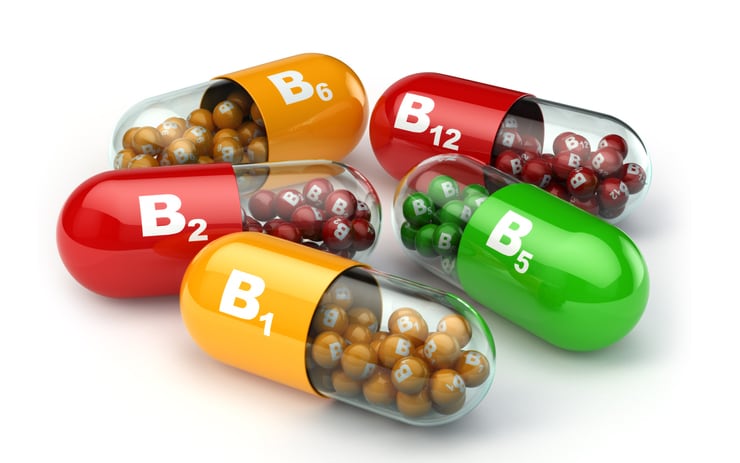Diabetes poses significant public health challenges globally, impacting many nations to varying degrees. The International Diabetes Federation has warned that diabetes, if poorly managed, could affect 9.9% of the world's population by 2040. Conventional pharmacological treatments exhibit limitations and may lead to adverse effects, necessitating the search for alternative approaches.
As such, researchers from China’s Ministry of Agriculture and Rural Affairs and Chinese Academy of Agricultural Sciences conducted a review to systematically investigate the link between vitamins A, B, C, D, E and K and diabetes, seeking to elucidate their potential mechanisms of action and assess their role in diabetes prevention and treatment.
Vitamin A
The review began with vitamin A, mentioning studies that suggested an association between beta-carotene intake and diabetes risk. Studies conducted in the US, Netherlands, Japan and China had similar results but conflicting outcomes as well, where no significant association was found.
For instance, a Japanese study suggested an inverse association between dietary vitamin A intake and diabetes risk, especially in individuals with low vitamin A intake. However, a Chinese study contradicted this, emphasising that the relationship between total vitamin a intake and diabetes risk was significant only in those with low vitamin A intake.
Researchers have attempted to elucidate the mechanisms behind vitamin A’s potential influence on diabetes, highlighting vitamin’s impact on cell development (including pancreatic cells crucial for insulin production). Animal studies have also demonstrated that vitamin A deficiency could lead to pancreatic beta-cell mass loss and reduced insulin secretion, resulting in hyperglycaemia.
Vitamin B
B vitamins’ play a crucial role in sugar, protein and fat metabolism. Studies have hinted at associations between thiamine (vitamin B1) and diabetes, with potential benefits in mitigating insulin resistance. Further investigations have unveiled lower thiamine levels in diabetic individuals compared to healthy controls, with some studies suggesting a higher thiamine requirement in those with diabetes.
The focus then shifted to pyridoxine (B6), another vitamin intricately linked to diabetes. With six common forms of vitamin B6, the researchers emphasised the significance of pyridoxal phosphate (PLP) concentrations in assessing vitamin B6 levels. PLP deficiency was found to impact diabetes through various mechanisms. One hypothesis suggested a connection between dysregulation of the tryptophan–kynurenine pathway and insulin resistance, with PLP acting as a key enzyme.
Other evidence supported the idea that PLP deficiency increased homocysteine levels, linked to obesity and impaired endothelial function, ultimately contributing to insulin resistance. The implications of this research are particularly significant for individuals with type 2 diabetes mellitus (T2DM), considering the widespread use of metformin as a first-line treatment. Long-term metformin use raises cobalamin deficiency risk, highlighting the importance of adequate vitamin B12 intake.
Vitamins C, D and E
Antioxidant vitamins C and E have emerged as potential players in diabetes management. Meta-analyses indicate that vitamin C may reduce fasting glucose and haemoglobin A1c (HbA1c) levels. Vitamin E, with its radical-scavenging properties, shows promise in restoring insulin and improving lipid profiles, making it a possibly valuable asset in T2DM management. However, the effectiveness of antioxidant treatments in humans remains inconsistent.
Vitamins C and E’s antioxidant properties may help improve insulin sensitivity by modifying oxidative stress signalling, though more extensive clinical trials are needed to solidify this evidence. The review also underscored the multi-directional impact of both vitamins on hyperglycaemia symptoms. These antioxidants are believed to reduce lipid peroxidation and insulin glycation in the pancreas, showcasing a complex interplay in diabetes management.
At the same time, observational studies have suggested a link between vitamin D deficiency and diabetes risk, particularly in seasonal patterns. Clinical trials show conflicting results, with some indicating vitamin D supplementation's potential to reduce diabetes risk and others disputing its efficacy.
Genetic studies also add a layer of complexity, indicating variations in vitamin D metabolic enzymes influencing susceptibility to type 1 diabetes mellitus (T1DM). In addition, clinical research has suggested vitamin D as an adjuvant to insulin therapy for children with T1DM. However, conflicting results in randomised trials have raised questions about the consistency of these findings.
Vitamin K
Finally, the review looked at Vitamin K, a fat-soluble vitamin with two natural forms, K1 (phylloquinone) and VK2 (menaquinones). Vitamin K1 is abundant in leafy greens and algae, while vitamin K2 can be produced by various bacteria, including gut microbes.
Observational studies and clinical interventions have found associations between Vitamin K and diabetes. Several studies, including those conducted in Spain, India, the Netherlands, Iran and the UK, have suggested a link between increased phylloquinone intake and improved insulin resistance and reduced diabetes risk.
Clinical studies exploring Vitamin K intervention in diabetes have mainly focused on diabetes-related metabolic indicators, with results from studies in Japan and Korea indicating that vitamin K may regulate insulin metabolism and enhance insulin sensitivity in sub-clinical vitamin K-deficient patients.
The review also suggested a genetic association between blood vitamin K1 concentration and reduced T2DM risk. However, the underlying mechanisms of vitamin K’s effect on diabetes are not yet clear. The researchers proposed three potential ways in which it acts on diabetes: osteocalcin regulation, anti-inflammatory effects and lipid reduction.
Vital research on vitamins
Despite the promising findings, the researchers acknowledged the need for larger, multi-ethnic prospective cohort studies and clinical intervention studies to verify the relationship between vitamin deficiencies and supplementation, and diabetes. The use of food frequency questionnaires and biomarkers as assessment tools is also a subject of ongoing investigation.
Caution has been urged in interpreting the results of existing studies on the link between vitamins and diabetes, given the complexity of the disease and potential confounding factors. The review emphasised the need for further controlled intervention experiments, as well as a personalised approach to vitamin supplementation based on individual physical conditions rather than a one-size-fits-all strategy.
Source: International Journal of Molecular Sciences
“Research Progress on the Relationship between Vitamins and Diabetes: Systematic Review”
https://doi.org/10.3390/ijms242216371
Authors: Jiameng Liu, et al.




